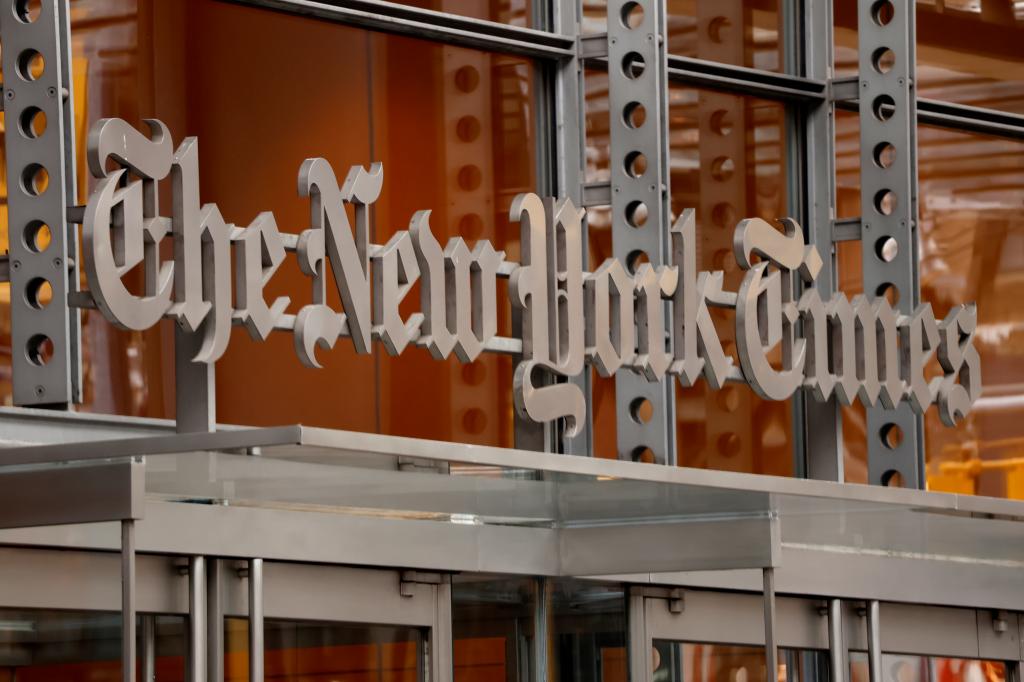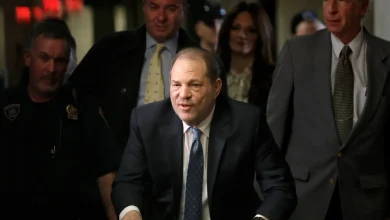NPR, New York Times are in immense turmoil with the world on the verge of global conflict

The world is on the brink of global conflict, America is divided into angry factions, and New York is sliding toward hell.
On the other hand, the editorial offices of the New York Times and National Public Radio are in turmoil.
Okay, it’s not as big as the widespread rise in violence and disorder, but we need to take the good news where we find it.
And these internal media battles are good news because the left-wing media has a taste of its own medicine.
Although the details differ, the common denominator is that insiders in both places accuse the leadership of bias and bigotry.
The intense fighting was made public, amplifying the stakes.
To be clear, these are not conservative uprisings against their progressive masters.
If either institution has a significant number of conservatives, they hide.
Instead, the fights are essentially between the demonic left and the even more demonic far left.
Naturally, much of the resentment revolves around Donald Trump.
Relentless negative coverage about him remains commonplace both on NPR and in the Times, but, as I predicted, the fundamental lack of fairness that polluted coverage of Trump in 2016 has extended to virtually every subject under the sun.
Unbiased stories have disappeared as left-wing opinion dominates.
Media critics have warned for years that a lack of standards would erode public trust.
But the warnings were ignored and now the chickens are coming home to roost.
US confidence has collapsed
Only 32% of Americans say they trust the media “a lot” or “somewhat,” according to Gallup, which says the figure is an all-time low.
NPR’s eruption was particularly dramatic, thanks to a courageous longtime reporter and editor who set partisanship on fire.
Meanwhile, the Gray Lady discovers that no matter how far left she goes, she is never far enough to satisfy the radicals on staff who demand that the paper adhere to her agenda.
They want to abandon any pretense of neutrality and become ardent defenders of extreme policies.
NPR’s battle was made public when veteran journalist Uri Berliner wrote an essay condemning what he called the “lack of diversity of viewpoints” in his workplace.
He checked the political registrations of his editorial colleagues in Washington, D.C., and found that 87 of them were registered Democrats and none were registered Republicans.
Bingo.
The result of this inherent bias is a one-sided view of America, he writes for the Free Press:
“There is a tacit consensus about what stories we should pursue and how they should be framed. It’s frictionless — story after story about alleged racism, transphobia, signs of climate apocalypse, Israel doing something wrong, and the dire threat of Republican policies. It’s almost like an assembly line.
He cites “bizarre stories” about how “bird names are racist,” others justify looting, and claims “fears about crime are racist.”
He skewers race-conscious staff by noting that audience demographics don’t reflect the nation as a whole, saying, “It’s overwhelmingly white and progressive, and clustered around coastal towns and college towns.” »
Berliner, clarifying that he is not conservative, writes that he voted against Trump in 2016 and 2020.
Yet he cites the way media outlets, including NPR, immediately dismissed the Post’s initial coverage of Hunter Biden’s laptop as an example of biased groupthink.
Anti-Semitism turns a blind eye
Likewise, he believes the outlet views the war between Israel and Hamas “through the ‘intersectional’ lens that has moved from faculty lounges to newsrooms.” Oppressor versus oppressed.
He criticizes what he calls NPR for “highlighting the suffering of Palestinians at almost every turn while downplaying the atrocities of October 7, overlooking how Hamas intentionally puts Palestinian civilians in harm’s way, and giving little weight to to the explosion of anti-Semitic hatred in the world.
Berliner says he only took the company public after failing to attract the attention of – or even meet with – senior management, and he is distraught by their refusal to address the deficiencies.
“People are polite,” he wrote.
“But nothing changes. So I became a visible bad thinker in a place I love. It’s uncomfortable, sometimes heartbreaking.
The situation at the Times is more complex as the editors who produce this lopsided paper are battling what they see as a new generation of contributors who want the paper to be even more lopsided.
In interviews with the Wall Street Journal, they blamed young technical engineers and data scientists who have little or no journalism experience.
Editor-in-chief Joe Kahn also criticized campus cancel culture, telling the Journal: “Young adults coming through the education system are less accustomed to this kind of open debate, this kind of exchange of views intense on issues that are important to them.
There is truth to his claims, but the fundamental problem is that Kahn’s predecessor, Dean Baquet, opened the floodgates to rampant prejudice during the 2016 campaign.
Citing an article by journalist Jim Rutenberg about the difficulty of covering Trump if one believes he is unfit to be president, Baquet said the article “highlighted” his concern.
His solution was to free top journalists from rules against giving opinions, and the paper soon began bashing Trump relentlessly.
No Russian recovery
It is no coincidence that the Times led the charge in misleading Americans about the Russia collusion fiasco. To this day, he has never admitted his mistakes.
Worse still, the trend persists. Kahn, after telling the Journal that he wanted media coverage of Trump to be devoid of emotion, cited a recent article of his as an example of fair, fact-based coverage.
Yet the article, titled “Why a Second Trump Presidency Could Be More Radical Than the First,” begins by resurrecting a remark Trump made in 1990 about how Chinese leaders crushed the Tiananmen Square protests a year earlier.
After pointing out that Trump had said communist leaders were “horrible” and “vicious” but that they “suppressed them with force,” the Times concluded that “his exaltation of the merciless crushing of Democratic protesters is infused with foreshadowing.”
If using an ambiguous 34-year-old quote to justify this sweeping conclusion constitutes fair coverage, fairness makes no sense.
Especially when the Times never acknowledges the unprecedented cruelty of Democrats who are trying to lock up Trump, bankrupt him and prevent him from voting for president.
As for the internal revolt, a flashpoint came when someone leaked information about a Times project for a podcast about how Hamas used rape as a weapon on October 7.
A lengthy article on the subject drew criticism from staff, and the pushback led to the podcast being postponed.
The Times launched an investigation into the leak, which led to claims it targeted African and Arab employees.
Accusations that Kahn and other editors are fanatics amount to reaping what they sow.
The newspaper regularly accuses Trump and most Republicans of racism and Islamophobia. Perhaps being falsely accused will cause editors to return to standards of fairness in their coverage of others.
Big chance, which is why we should enjoy their reward while it lasts.
New York Post





